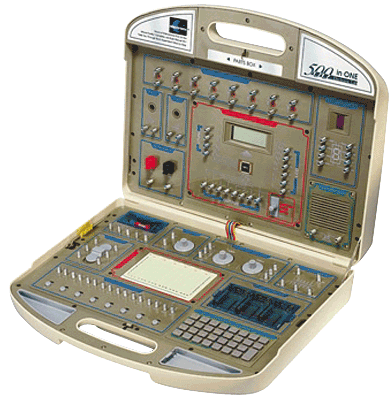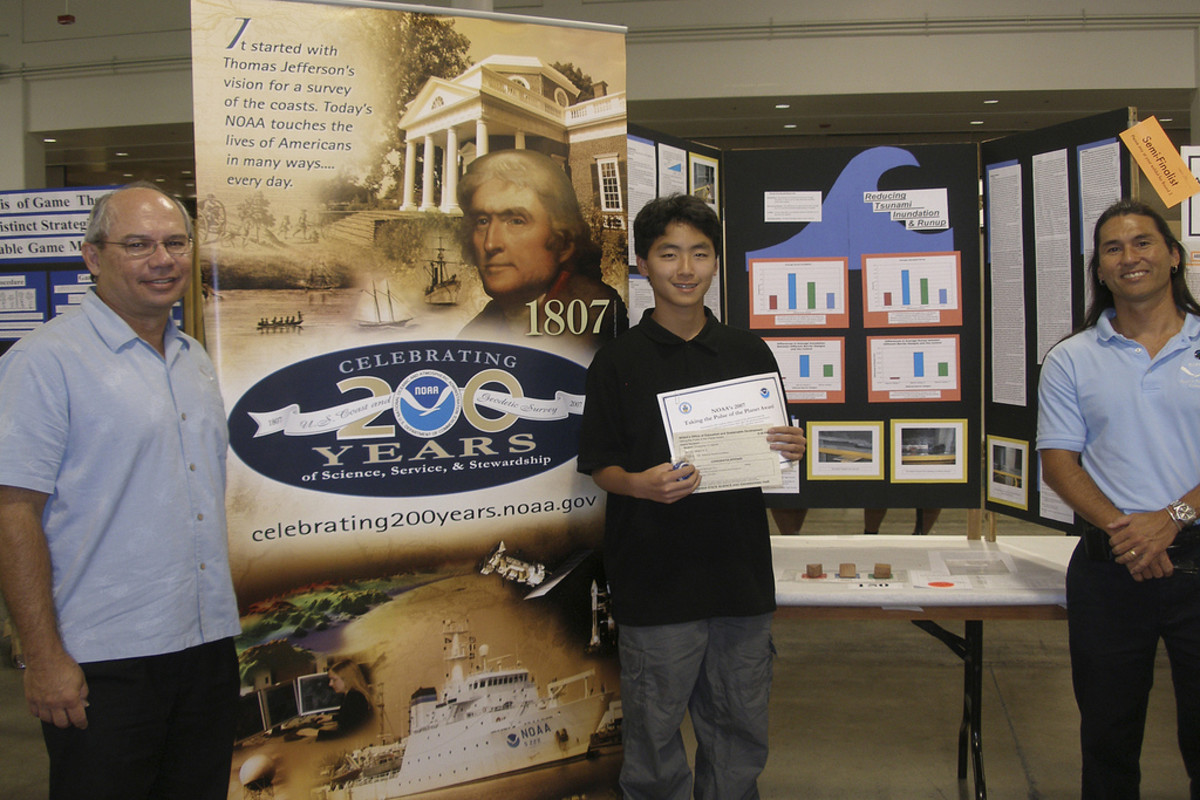Electronics Science Fair Projects for Kids

Introduction
Electronics science fair projects give you the opportunity to not only explore an amazing field of science, but it also gives you the chance to understand how things in the modern world work. Since nearly everything that we use in the modern world from light bulbs to computers utilize electricity or electronics, it is an important field for students to explore. If you are ready to amaze yourself and the judges at your local or state science fair, then let's learn more about electronics science fair projects.
Topics for Electronics Science Fair Projects
Like any other science fair project, your first step is to come up with a great topic to explore. Electronics science fair project topics can range from topics that cover the basics of electricity, such as electrons, resistance, transmitters and conductors, to advanced electronics concepts such as robotics, electrical circuits and capacitors. The key to selecting a good topic for your electronics science fair project is to focus on something that you are interested in, and that can be applied to a problem or questions that you want to solve.
Sample Topics for Electronics Science Fair Projects:
1. Why do some metals conduct electricity better than others?
2. Can a circuit be made without using metal wires?
3. What chemical reactions can create electricity?
4. How does sound activate some robots?
Developing a Topic
Once you have a question that you would like to focus your science fair project on you need to explore what the question is asking. This will help you to make your question as specific as possible.
Another step to take when developing a topic is to think of new and interesting ways to approach your subject. You can ask yourself if there is another way to achieve the results you are after, or if there is a better way to achieve the results that you are after.

Finding Resources for Your Electronics Science Fair Projects
Finding resources for your electronics science fair projects is simple to do. This is because electronics and electricity are very popular science topics. The first place that you will want to look for resources for your science project is in your school or local public libraries. Here you can look up background information on electricity and electronics in science journals, magazines and books. Next you can pick up science kits and equipment to conduct preliminary electronics lab for students. These experiments will allow you to explore electronics themed science concepts and learn how to set up science experiments. Finally, the Internet is a treasure trove of information on electronics. However, make sure you only use the information from websites that have some authority, such as government websites, online libraries and non-profit organization websites.
Experiment Ideas
Designing an experiment for yourelectronics or electricity science fair project is a challenge. If you design the experiment incorrectly then you can destroy months of hard work. The key to designing an effective experiment is to focus on testing for a single variable and to focus on answering the question posed by your hypothesis. If you accomplish both of these things, then your experiment design will be successful.
Experiment Ideas:
1. Test the resistance created by various types of metal wires.
2. Test to see if the thickness of a wire impacts the resistance of a specific
wire.
3. Test to see if salinity impacts the conductiveness of water.
4. Test to see if heat impacts the conductiveness of a wire.
Oscillator Circuit - A Weekend Project with Maxitronix
Putting Together Your Presentation
While you may think that once you have your project completed and set up at a science fair your work is done. Unfortunately this is not the case. You still are required to answer people's questions about your project and you will generally be required to deliver some sort of oral presentation to the judges. The oral presentation of your science fair project will need to have several specific parts. First it needs to summarize what your hypothesis was, what you were trying to find out and what you discovered. You will also need to explain how you set up your experiment, how you collected data and how you analyzed your data. Finally you will need to explain what errors you made in the design of your project and what research is still needed on your topic. After you complete your oral presentation be prepared to answer questions from the judges about your project and about your topic.
Science Kits vs. Raw Materials
When you are designing your electronics science fair experiment you have two options. Your first option is to utilize the materials that come with electronics science kits. Your second option is to work from scratch using raw materials. In many cases it is less expensive to use the materials that come in a science kit then it is to buy all the equipment and materials that you will need to conduct an electric experiment, however, if your school already has these materials then you won’t need the kit.
Common Mistakes to Avoid
When putting together electronic science fair projects you want to avoid common mistakes. The first mistake that you can make is to replicate a science fair project that has already been done. You need to be original. The second mistake that you can make is to not complete all of the steps in the scientific method. The final mistake that you can make is to make inappropriate conclusions based on the data that you collected. Make sure you don’t make errors interpreting your data, use research to support your findings and conclusions.








